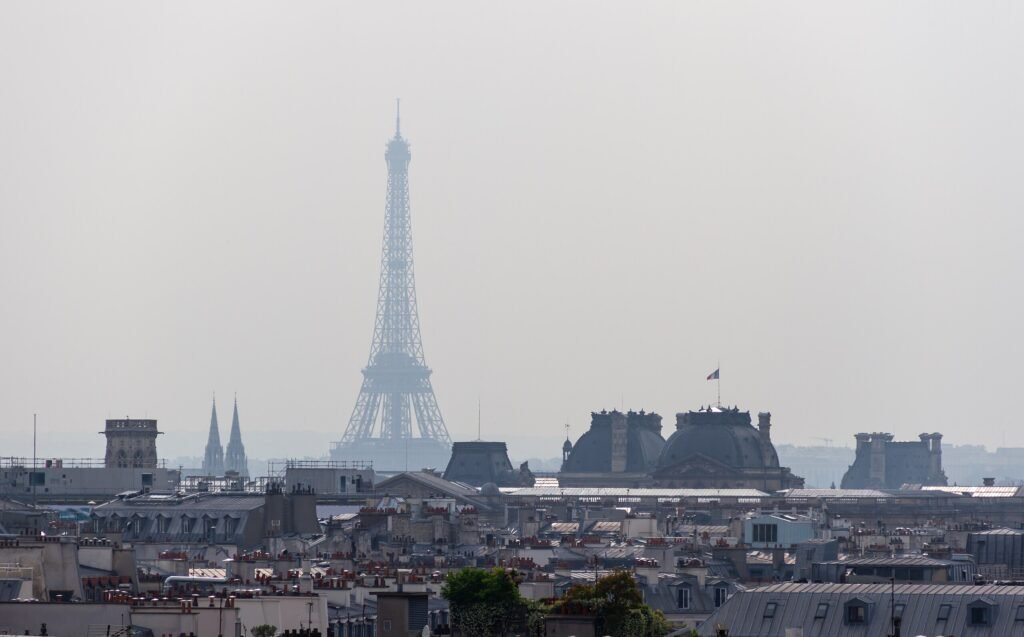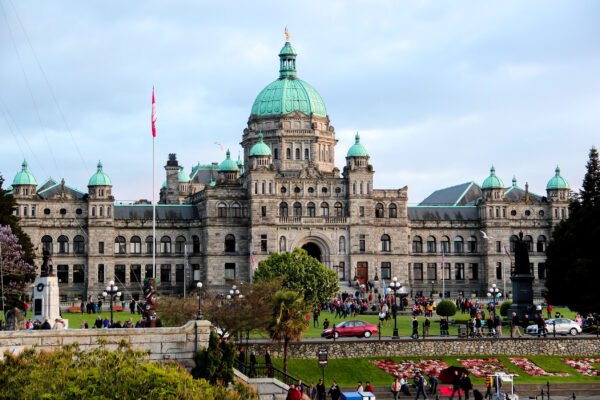Eco-Friendly Travel to Paris: Sustainable Practices & City Initiatives

Paris always captivates with its timeless landmarks and beautiful cityscapes. Yet, as the urgency of climate change grows, the environmental impact of tourism becomes a critical concern. Sustainable tourism offers a solution. It allows visitors to enjoy the city’s undeniable charm without contributing to pollution or resource depletion. In fact, making eco-friendly choices can often enhance the travel experience, connecting you more deeply with the city.
This article explores both the eco-friendly practices you can implement as a visitor and the sustainable measures Paris itself has taken. We will focus on transportation, sustainable development, and city policies, aiming to inspire responsible and enriching travel.
Eco-Friendly Practices for Visitors: What You Can Do
You have significant power to minimize your environmental footprint while planning and enjoying your trip. This section outlines practical steps, starting from your initial preparations and continuing through your on-site activities.
These practices align directly with broader sustainable tourism goals, such as reducing carbon emissions and supporting the local Parisian economy. While some believe eco-friendly travel is inconvenient or expensive, many accessible options actually save both money and time.
Sustainable Transportation Options
Consider your arrival. High-speed rail networks, like the Eurostar, offer an excellent alternative to flights, which have high carbon emissions. Once in Paris, use the extensive public transport system. The metro, buses, and RER trains are efficient and increasingly powered by renewable energy.
For shorter distances, rent a bike through the popular Vélib’ sharing program or opt for an electric scooter. Paris is also wonderfully pedestrian-friendly, so walking is often the best way to explore. For unlimited, eco-efficient travel, consider purchasing a Navigo pass.
Why do these choices matter? Every trip taken on the metro or by bike is one less car on the road. This directly reduces traffic congestion and air pollution compared to using private cars or rideshares, making the city more pleasant for everyone.
Choosing Eco-Friendly Accommodations
When booking your stay, look for hotels or rentals with green certifications. Labels like the EU Ecolabel indicate a commitment to energy efficiency, water conservation, and waste reduction.
We also advise staying in central arrondissements (districts). This choice minimizes your transportation needs, supporting the “15-minute city” concept Paris is actively pursuing. This urban planning idea ensures all essential needs are within a short walk or bike ride from your residence.
While some eco-friendly accommodations might appear to have higher initial costs, they often provide long term benefits. These can include energy savings passed on to consumers and, more importantly, offering more authentic local experiences by integrating you into a neighborhood.
Low-Impact Activities and Sightseeing
Paris offers abundant low-impact activities. Explore the city’s beautiful parks, such as the Jardin des Tuileries or the expansive Bois de Vincennes, for nature-based recreation. You can also join guided walking or cycling tours that focus specifically on sustainable development, or visit unique eco-conscious attractions like urban farms or recycled art installations.
To find your way, consider using apps like Balades Paris Durable. This app suggests green walking routes that showcase community gardens and public water fountains, helping you avoid plastic water bottles.
Seasonal weather can sometimes affect outdoor activities. If you encounter a rainy day, seek out indoor alternatives, such as visiting museums that feature sustainability exhibits.
Sustainable Dining and Shopping Practices
Your dining and shopping choices also have an impact. We encourage eating at restaurants that offer organic, locally sourced meals; this cuts down on “food miles” (the distance food travels from farm to plate). Avoid single-use plastics by carrying reusable water bottles, coffee cups, and shopping bags. When looking for souvenirs, shop at local markets for fair-trade items instead of mass-produced goods.
Paris has a growing trend toward reduced meat consumption, so you will find many excellent vegetarian and plant-based options. It is a common misconception that eco-friendly eateries offer limited variety. In reality, Paris provides a diverse and exciting range of sustainable dining, with many affordable choices available.
These individual practices are powerful, but they become even more effective when combined with the city’s broader efforts. This creates a synergistic approach to sustainable tourism.
Paris’s Eco-Friendly Measures and Sustainable Policies
The city of Paris is not just encouraging sustainable tourism; it is actively implementing initiatives to foster sustainable development. These measures range from major infrastructure improvements to comprehensive policy frameworks. This evolution is guided by the Paris Climate Action Plan, which aims for the city to be carbon neutral by 2050. These policies directly address pressing issues like air pollution and the challenges of overtourism.
Implementing these changes presents challenges, of course, including managing long timelines and ensuring effectiveness varies across different arrondissements. However, the city continues to adapt, with recent updates and enhancements following the 2024 Olympics speeding up progress.
Advancements in Sustainable Transportation Infrastructure
Paris has made significant advancements in its transportation infrastructure. The city has expanded its cycling network to over 1,000 kilometers of bike lanes. It is also aggressively shifting its public transit, aiming for a 100% electric bus fleet by 2025, and has pedestrianized many key streets to reduce vehicle emissions.
River transport on the Seine is also being promoted as a low-impact alternative. Furthermore, a permanent Low Emission Zone restricts access for older, more polluting vehicles. These measures collectively reduce greenhouse gases, and data has shown a drop in emissions since 2004. While some initiatives initially met counterarguments regarding traffic disruptions, the long term benefits of improved air quality and a quieter city are becoming clear.
Green Spaces and Biodiversity Initiatives
The city is actively “greening” its urban landscape. This includes creating urban forests, with a goal of planting 170,000 new trees by 2030. These new parks and green spaces are vital for carbon sequestration and also act as “cool islands” during increasingly frequent heatwaves.
Paris is also undertaking efforts to renaturalize riverbanks and restore wetlands.
These projects are not just for beauty; they are critical for sustainable water management and improving biodiversity within the city limits. A dense city like Paris faces obvious space constraints. The city counters this limitation through innovative solutions like promoting rooftop greening and encouraging community involvement in local gardening projects.
Waste Management and Resource Conservation Policies
Paris has adopted ambitious policies for waste and resource management. The city moved to ban single-use plastics by 2024, has expanded recycling centers, and is rolling out widespread composting initiatives. The goal is to cut waste by 20% by 2030.
Water sobriety measures are also in effect. These include rainwater harvesting systems and utilizing non-potable water networks for street cleaning, aiming to reduce overall consumption by 15%. These policies directly support sustainable tourism by creating cleaner streets and enabling eco-friendly events. While some may believe dense urban areas cannot achieve high recycling rates, Paris’s progress demonstrates that significant waste reduction is possible.
Support for Eco-Responsible Tourism and Events
The city provides direct support for eco-responsible tourism. This includes promoting certifications for green hotels and supporting local producers through the ‘Fabriqué à Paris’ (Made in Paris) label. Paris has also developed charters for eco-friendly events to ensure large gatherings minimize their environmental footprint.
To combat overtourism, the city is actively encouraging off-peak visits and promoting rail travel as the preferred method of arrival. This strategy aims to distribute the flow of visitors more evenly throughout the year, reducing strain on infrastructure during peak months. When looking at these policies, it is important to consult the most current data. The 2024-2030 Climate Plan provides updated goals and strategies compared to earlier reports, reflecting the city’s evolving response to climate challenges.
Conclusion
As we have seen, sustainable travel to Paris is both feasible and enjoyable. By prioritizing public transport, choosing green accommodations, and dining locally, you can significantly reduce your impact. These efforts are matched by the city’s strong commitments, from electric bus fleets to ambitious green space expansions.
Your individual actions amplify these city-wide efforts to combat climate change. We encourage you to plan your next trip with these principles in mind. You can have a guilt-free, enriching experience exploring the evolving green heart of Europe.
Further Readings & Resources
The following sources and links are accurate as of the publication date of this article.
- Official Paris Tourist Office on Sustainable Tourism: https://parisjetaime.com/eng/discover-paris/paris-by-theme/sustainable-tourism-paris-i040
- Official Guide to Paris as a Sustainable City: https://parisjetaime.com/eng/convention/article/paris-sustainable-city-a1195
- Paris Climate Action Plan 2024-2030: https://cdn.paris.fr/paris/2025/06/25/plan-climat-en-9E8O.pdf



Leave a Reply